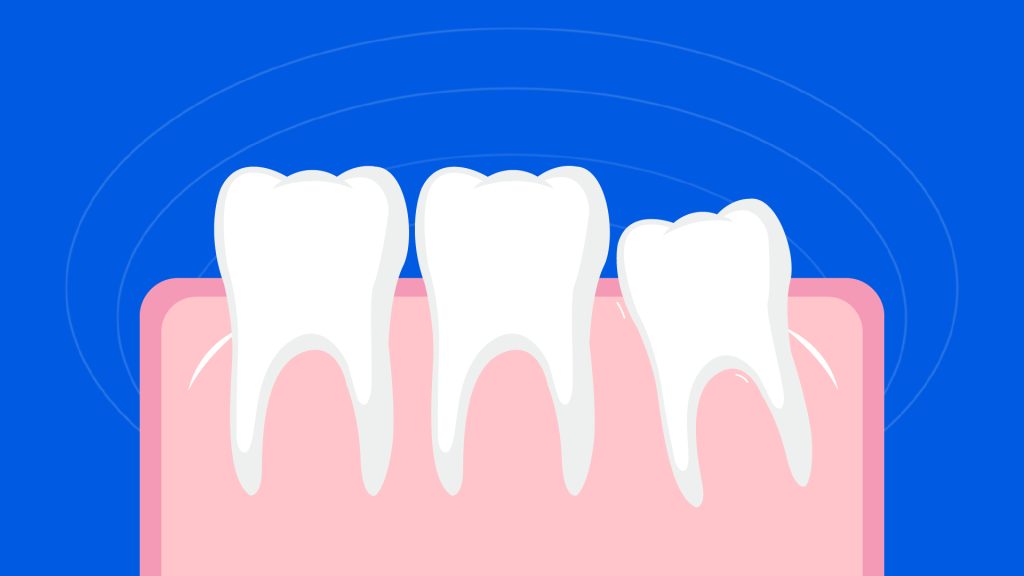Are you contemplating whether you should keep your wisdom teeth or have them removed? It’s time to learn about the surprising benefits of having them around. Let’s dive in!
So, what exactly are wisdom teeth?
Why are wisdom teeth called the way they are? These often appear between 17 and 21 and are found at the back of your mouth. As part of a complete set of 32 adult teeth, you get two on top and two on the bottom. These molars boast a more distinctive presence, often stirring up discussions about impaction and misalignment.

The history and practice of wisdom teeth
Scientists think our ancient ancestors mostly ate tough plants, seeds, nuts, and sometimes raw meat that was rich in protein. Back then, they didn’t have ways to pre-digest or cook food like we do today. So, they needed powerful jaws to bite, tear, and chew their food into a form that could be easily digested. These days, with everything from softer food to forks, spoons, and knives, wisdom teeth are practically unnecessary. Nearly 98% of adults have their wisdom teeth removed before the age of 65.
Are there any benefits to keeping your wisdom teeth?
You may be wondering if it’s a good idea to keep your wisdom teeth or do you need to go through the hassle of having them removed. If you go for a dental checkup, more often than not, your dental experts would recommend the removal of wisdom teeth as they can be inconvenient to clean, cause teeth alignment issues or even result in tooth decay. In addition, there are no noteworthy advantages in retaining your wisdom teeth.
However, for those who don’t intend on meddling with the molars hidden at the back, there are certain circumstances under which you can consider keeping your wisdom teeth. You may be able to keep your wisdom teeth if they are:
- Healthy
- Fully erupted
- Positioned correctly
- Able to be cleaned properly
When should you remove your wisdom teeth?
While wisdom teeth are known to cause several potential problems, removal depends on the individual and their health needs, and not everyone has to go through this process. You should take out your wisdom teeth if they’re causing problems. Issues like decay, gum disease, or damage to nearby teeth are also reasons for removal. Dentists use X-rays to determine if taking out these teeth is the right move for your long-term oral health.
Wisdom teeth tend to show up in your late teens or early twenties which can cause immense pain due to several reasons. For instance, when a wisdom tooth does not erupt straight, it tends to push and apply pressure on the adjacent teeth which is often the cause of pain. Such eruption patterns often cause teeth misalignment that requires the intervention of dental orthodontic procedures. In such cases, it is highly recommended that you remove your wisdom to make more room for the other teeth to grow and align.
Fortunately, there are dental treatments like Zenyum’s invisible braces which help correct your misaligned teeth structure and help you retrieve the bright smile that you deserve. While removing your wisdom teeth before braces treatment is not mandatory, removing them always helps you achieve the best results possible. And Zenyum partners with expert partner clinics to help assess your dental condition and give a treatment plan that best suits you!

How to maintain your wisdom teeth for optimal oral health
Keeping your wisdom teeth is important for a healthy mouth. Although people often think these back molars can cause problems, holding onto them can help your other teeth and gums. Brushing your teeth, including wisdom teeth, twice daily with fluoride toothpaste and flossing regularly can help prevent further plaque buildup. Going for dental check-ups regularly to monitor the health of your wisdom teeth and address any issues early on is also crucial.
When it comes to maintaining oral hygiene, consider electric toothbrushes like ZenyumSonic to reach the furthest corners of your mouth and ensure a thorough cleaning, even for your wisdom teeth. This can be followed up by flossing around your wisdom tooth for effective removal of plaque in nooks where even your electric toothbrushes can’t reach.
Maintaining good oral care extends beyond achieving a beautiful smile; it plays a crucial role in your overall health and reflects self-care. Beyond just a radiant smile, proper teeth brushing and gum care contribute to a healthier heart, lower the risk of illness, and even support better digestion. By choosing the right products, you not only enhance your smile’s appearance but also fortify it, leaving you both looking and feeling great. After all, it’s the healthiest smile that shines the brightest.

Conclusion
In short, wisdom teeth served a great purpose when our ancestors had a need for grinding on food like raw meat and other forms of uncooked food. But that isn’t the case anymore. Even though they can help with chewing, it is common for people to get them removed if they cause problems. Whether you keep them or not depends on your health, and the amount of effort required to take care of them with regular check-ups. Essentially, the decision to keep your wisdom teeth boils down to what’s best for each person.
FAQ
Do wisdom teeth cause shifting of other teeth?
Yes, wisdom teeth can cause shifting as they emerge, leading to overcrowding and misalignment.
Do wisdom teeth grow on both sides?
Yes, typically, wisdom teeth grow on both sides of the upper and lower jaw.
When do wisdom teeth stop growing?
Wisdom teeth usually stop growing in the late teens to early twenties.
What happens if I keep all my wisdom teeth?
Keeping all wisdom teeth may lead to issues like overcrowding, misalignment, and increased risk of decay or infection, making removal advisable in many cases.




